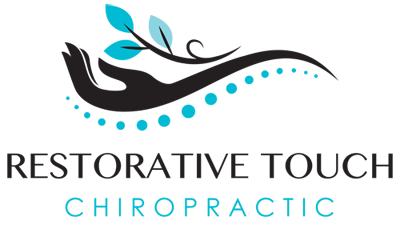“The Dirty Dozen Plus 2” and “The Clean 15”—When is it crucial to buy organic?
I remember as a kid not being allowed to leave the dinner table if I didn’t eat all the vegetables on my plate. At the time, I thought that was definitely abusive behavior on the part of my mom that borderline merited calling child protective services. Now, of course, I know better. Thanks Mom, I know you tortured me with broccoli out of love.
Eating a diet filled with plenty of fruits and vegetables has numerous health benefits. Fruits and veggies are bursting with vitamins and minerals. They also provide antioxidants to fight cancer and inflammation, as well as fiber to help us maintain a healthy gut.
And not only that, but most vegetables and fruits are also low in calories so they pack a nutritious punch without adding to your waistline. Just be careful to eat starchy vegetables such as potatoes in smaller portions, and to choose low glycemic fruits such as berries more often than bananas and other higher glycemic fruits. (Note: High glycemic foods tend to raise blood sugar more and are associated with weight gain.)
Both fresh and frozen fruits and vegetables retain their precious cargo of vitamins and minerals. Avoid canned fruits and vegetables, where the beneficial nutrients have been destroyed and often a lot of salt and sugar has been added.
And most of all, beware of “The Dirty Dozen plus two!”
What’s “The Dirty Dozen plus two?” It’s a list of fruits and vegetables compiled by the Environmental Working Group (an organization of scientists, researchers and policymakers) using data from the United Sates Department of Agriculture on the amount of pesticide residue found on non-organic fruits and vegetables after they were washed. (That’s important because, unfortunately, washing the produce doesn’t remove the pesticides like many people think or hope.)
The group put together two lists: one called “The Dirty Dozen” and one “The Clean 15,” as a guide for consumers to help them know when they should definitely, without a question buy organic, and when it’s ok to buy conventional.
The fruits and veggies on “The Dirty Dozen” roster (when not grown organically), tested positive for at least 47 chemicals! Some tested positive for up to 67! So when you’re thinking of indulging in produce from the “not so clean list,” you should definitely go organic…unless you’d like to shock your system with a nice little chemical cocktail. Cheers!
In 2012, The Environmental Working Group added two extra foods to “The Dirty Dozen” list, now making it “The Dirty Dozen plus two.” The list as of today (July 2015) consists of:
- Apples
- Celery
- Cherry Tomatoes
- Cucumbers
- Grapes
- Nectarines
- Peaches
- Potatoes
- Snap peas
- Spinach
- Strawberries
- Sweet bell peppers
- Hot peppers (plus)
- Kale/collard greens (plus)
Green beans used to be on “The Dirty Dozen list” because they were often contaminated by two highly toxic organophosphates. But those pesticides are now being withdrawn from agriculture, so green beans were removed from the list. Domestically grown leafy greens were added to the list in 2013 because they were found to be contaminated with pesticides that are exceptionally toxic to the nervous system.
So what about “The Clean 15?” If you’ve got the spare change, I’d say organic is always your best bet. But, if like most people, you’re working on a budget, then “The Clean 15” are safe to buy conventional (non-organic). “The Clean 15” includes:
- Asparagus
- Avocados
- Cabbage
- Cantaloupe
- Cauliflower
- Eggplant
- Grapefruit
- Kiwi
- Mangos
- Onions
- Papayas
- Pineapples
- Sweet corn
- Sweet peas – frozen
- Sweet potatoes
A brief explanation on terminology might be in order. Foods are often labeled “Natural.” It sounds good. “Natural…” Natural is good, right?
The word “Natural” on a label actually has no nutritional or legal definition—it’s just an advertising ploy to trick people into thinking that what they’re buying isn’t so bad for them after all. And “Natural” most definitely does not mean “Organic.” The two words are not interchangeable. If it doesn’t say Organic, then it’s not.
So for the record, I highly encourage loving and caring parents to continue torturing their children with vegetables on their dinner plates, as long as “The Dirty Dozen” produce is organic. And perhaps we should change the famous saying to: “An organic apple a day, keeps the Doctor away!”
Click here for the pdf version of EWGs dirty dozen and clean 15 list.

